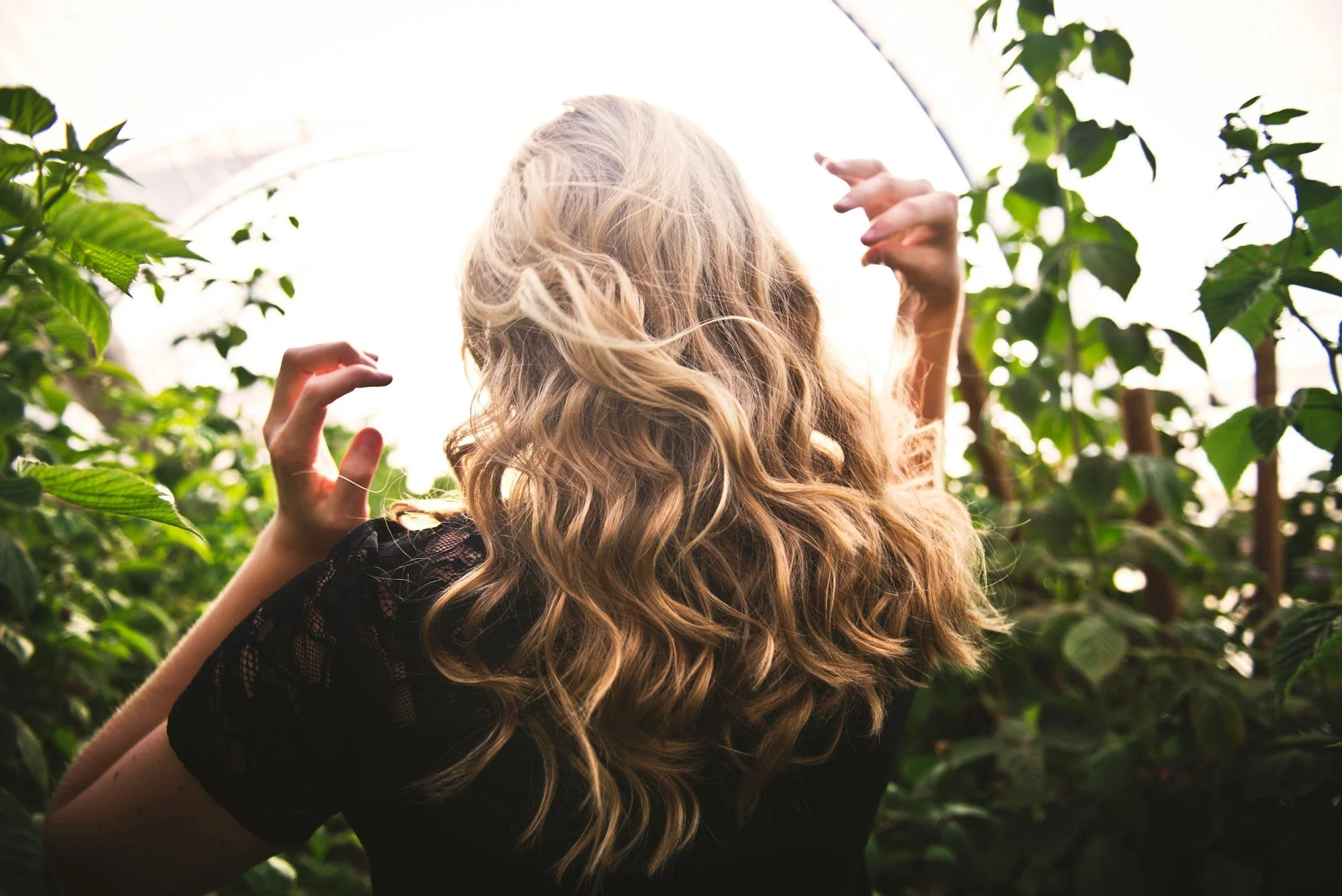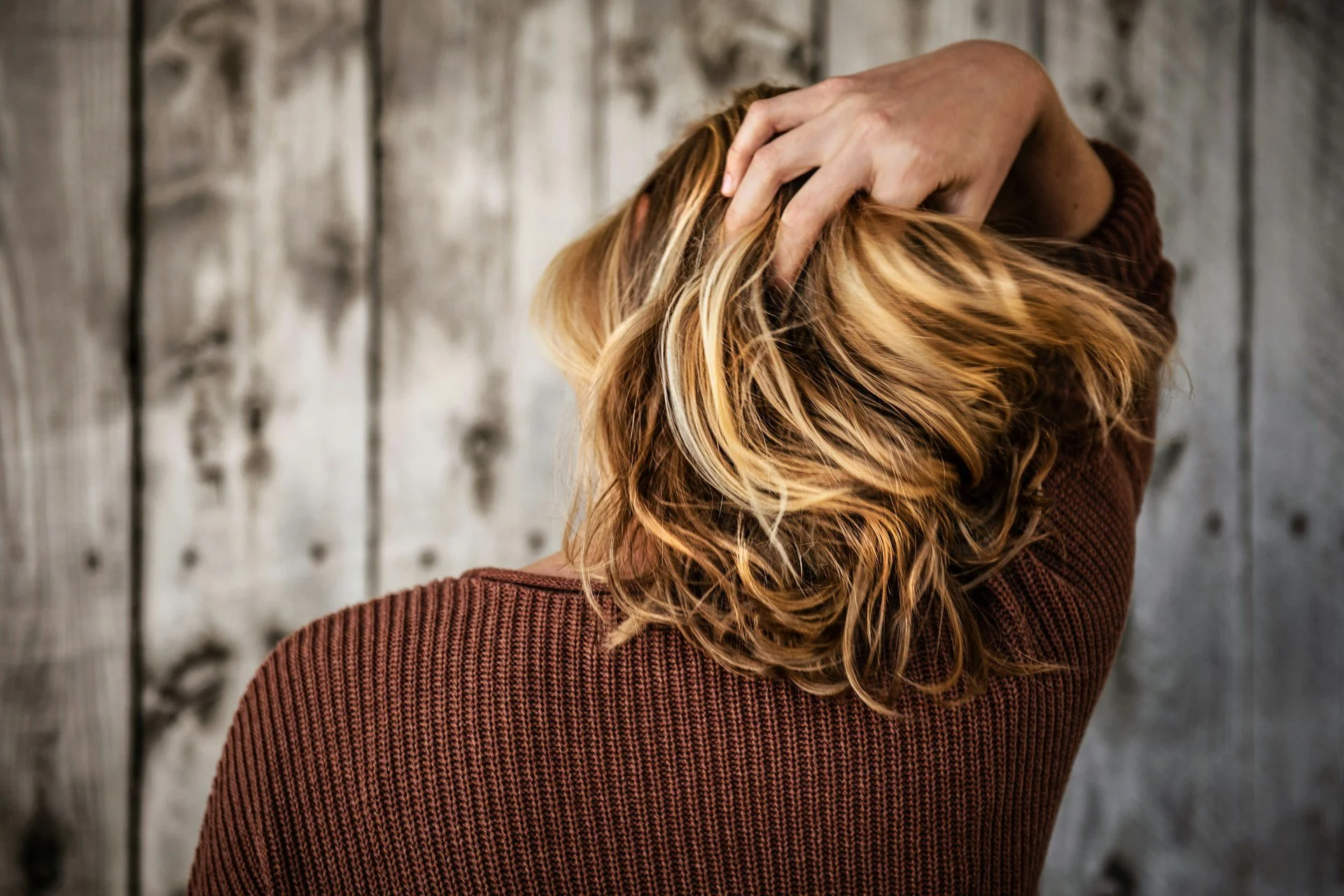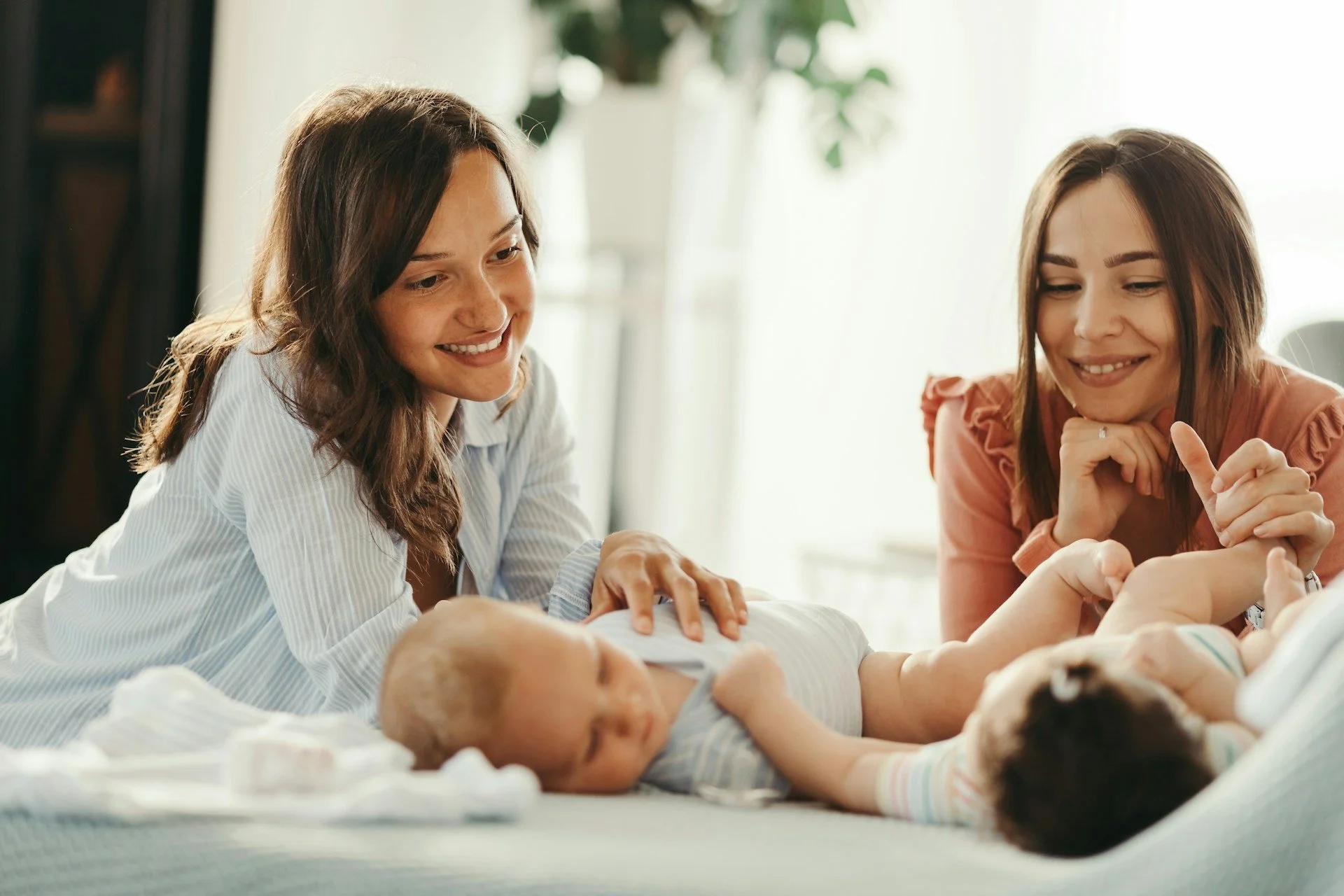Postpartum Hair Loss
What It Is and What Can We Do About It?
Congratulations on welcoming a new life into the world! Amid the joys of motherhood, many women face the unexpected challenge of postpartum hair loss. Let’s delve into what this is, why it happens, how long it lasts, and explore holistic ways to manage it.
What is Postpartum Hair Loss?
Postpartum hair loss is a common condition many new mothers experience. After giving birth, you might notice more hair shedding than usual. This can be distressing, especially after enjoying the lush, full hair often experienced during pregnancy. The good news is that this is typically temporary and not indicative of permanent hair loss.
Why Does It Happen?
Hormonal Fluctuations: During pregnancy, elevated levels of estrogen prolong the growth phase of hair, leading to less shedding and thicker hair. After childbirth, estrogen levels drop, and the hair that was in a prolonged growth phase enters the shedding phase, causing noticeable hair loss.
Stress and Fatigue: The physical stress of childbirth and the demands of caring for a newborn can exacerbate hair shedding. New mothers often experience changes in sleep patterns and stress levels, which can further impact hair health.
Nutritional Deficiencies: Pregnancy and breastfeeding can deplete essential nutrients. Deficiencies in iron, zinc, and vitamins can contribute to hair thinning.
Postpartum Thyroiditis: Some women develop thyroid issues postpartum, which can affect hair health. Hypothyroidism and hyperthyroidism both have links to hair loss.
How Long Does It Last?
Typically, postpartum hair loss begins around two to three months after delivery and can continue for about six months to a year. Most women find their hair returns to its pre-pregnancy state within a year, although some may notice changes in texture or volume even after this period.
What Can We Do To Manage It?
While this phase is usually temporary, adopting a holistic approach can help minimize hair loss and promote regrowth.
Nutrient-Rich Diet
Focus on Protein: Hair is made of keratin, a protein. Including organic meats, wild-caught fish, pasture-raised eggs, and grass-fed collagen in your diet can support hair strength and growth.
Incorporate Healthy Fats: Omega-3 fatty acids, found in wild-caught fish, flaxseeds, and walnuts, help maintain scalp health.
Vitamins and Minerals: Ensure you’re getting adequate vitamins A, C, D, and E, along with minerals like zinc and iron. These are crucial for hair health. Consider purchasing our postpartum package if you haven’t already. This package provides all nutrients needed for optimum health postpartum.
Healthy Hair Care Routine
Avoid Heat Styling: Minimize the use of hair dryers, straighteners, and curling irons, as heat can weaken hair strands.
Choose Toxin-Free Products: Opt for sulfate-free shampoos and conditioners. Products with natural ingredients like aloe vera and coconut oil can nourish the scalp without harsh chemicals. We recommend the Acure Organics brand for a high-performing, low-toxin option.
Minimize Tension: Avoid tight hairstyles that pull on the scalp. Instead, opt for loose braids or buns.
Stress Management
Mindfulness and Relaxation: Practices such as yoga, meditation, and deep-breathing exercises can help manage stress levels. You can read more about our favorite stress management tips here.
Seek Support: Don’t hesitate to ask for help from family, friends, or postpartum support groups. Raising babies takes a village and the more help, the better. Sometimes, even just talking about your experiences can alleviate stress.
When to Seek Medical Advice
If your hair loss seems excessive or you notice other symptoms like excessive fatigue, weight changes, or mood swings, it may be wise to consult a healthcare provider. Conditions such as postpartum thyroiditis or iron deficiency anemia can exacerbate hair loss and may require medical intervention.
Postpartum hair loss, while a normal phase for many, can be emotionally challenging. Understanding the underlying causes and embracing holistic strategies can make this transition smoother. Remember, your body has undergone so much bringing new life into the world. With time, patience, and self-care, your hair will likely regain its health and vibrancy before you know it!



